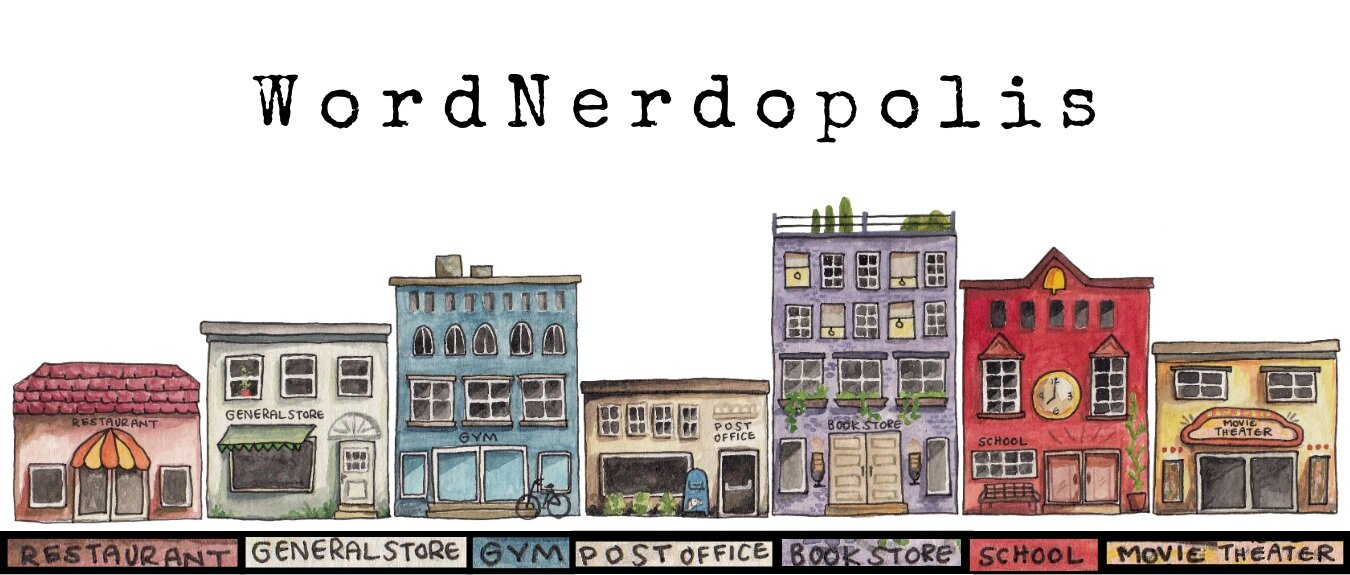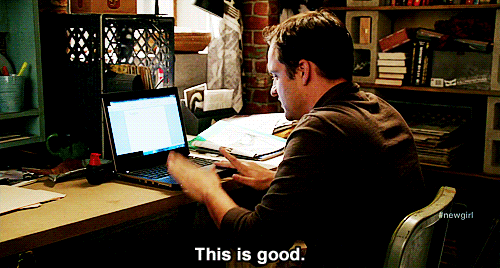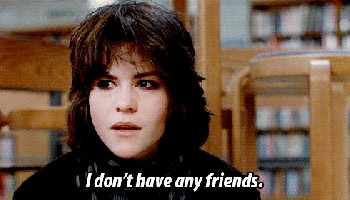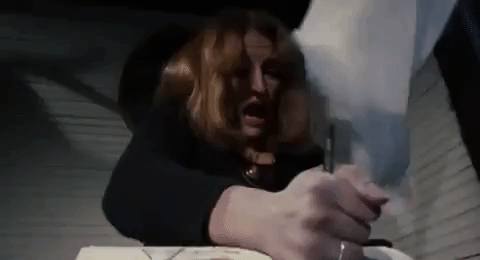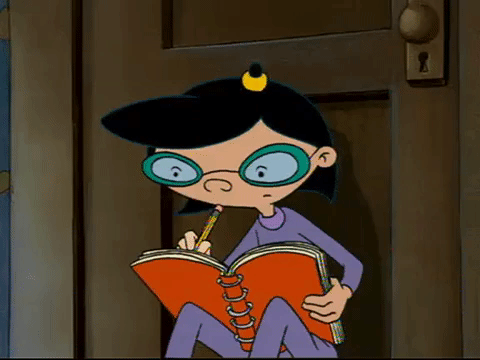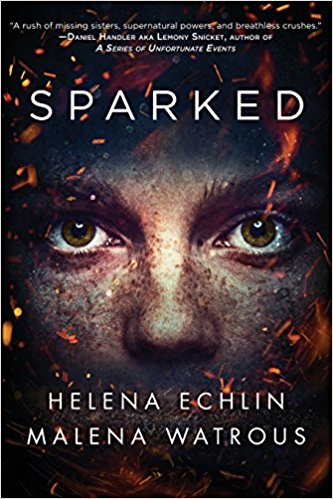Co-Writing
Most people view writing as a solo-affair. I assume the general public views a writer in one of these ways.
Moody, brooding, lonely… it dark, quiet places. Or maybe you’ve seen a writer exhibit an array of eccentric qualities in public, out and amongst the crowds, all while they ignore the rest of humanity and slave away at their keyboard.
It’s true, there are a lot of solitary hours in a writer’s world. It’s also true that to get the work done, writers need to forget large portions of the world actually exists so they can create new ones. But if you are a social butterfly interested in the industry of writing, it doesn’t have to be this way… all the time. (Side note, not all writers are the sycophantic, antisocial beings you might imagine them to be. Some of us are really nice people!)
One new popular trend is co-writing a book. Many people are already doing this. For example, Erin Hunter, author of the beloved middle grade Warriors series, is actually four different women. And get this, they’ve never met in person! James Patterson has started a co-writing revolution by co-authoring books with previously unknown writers. Author Shannon Hale co-writes with her husband Dean Hale. Another great example is the mother-daughter trio of Kelly Moore, Tucker Reed and Larkin Reed who wrote a YA book!
Two more authors following the co-writing method are the duo of Helena Echlin and Malena Watrous, featured in Once Upon a Book Club’s November YA box novel choice: Sparked.
“Fifteen-year-old Laurel Goodwin wakes up to find her older sister Ivy missing from their Airstream trailer in the Oregon redwoods. A recurring nightmare convinces her that Ivy was abducted, but no one takes her dream seriously, including her mom. Laurel, a loner, has to learn to ask for help, and Jasper Blake, a mysterious new kid who shares her love of old books, quickly becomes her ally. Together they find their quiet town holds a deep secret and is the epicenter of a dark prophecy.
Laurel soon learns that her worst enemies, mean girls Peyton Andersen and Mei Rosen, are developing powers that she needs to find and save Ivy. With time running out, Laurel realizes that power doesn’t always take the form that you expect. And once she learns to look beyond her snap judgments, she develops an unexpected gift of her own. ”
I was able to catch up with Helena and Malena (mid-book tour!!) and ask them a few questions about their writing process. Here’s what they had to say.
How did you ladies meet and decide to work together?
Helena: We went out for a drink about five years ago. It happened to be a Friday the thirteenth. We actually barely knew each other – we’d just met at a wedding and were becoming friends. We had a lot in common: we both had young children, and had both published novels for adults. I told Malena I wanted to write a YA novel for a change. Malena told me the idea for Sparked—girl wakes up to find her old sister missing, etc. I immediately started riffing: Obviously we have to have a love interest. Why don’t we throw in ancient prophecy? And by the end of the night, we had the whole plot outline. The next day, I couldn’t stop thinking about our story, so I wrote a scene and sent it to Malena,
Malena: I wrote back with an edited version, and before we knew it we were both totally obsessed. We wrote the first draft in five months, which the writers among you know is record time.
Helena: Then we reread that first draft and discovered that it relied too much on well worn YA tropes. In some ways, readers of the YA supernatural genre are way more demanding than readers of adult literary fiction because they expect a story full of magic, mystery and romance, but they’re also too smart to stand for clichés like a gratuitous love triangle or a brooding, unnecessarily standoffish hero. We’re both perfectionists, and we had to do more rewrites than I like to think about to get this book just the way we wanted it. We did our best to write a suspenseful thriller, but with flawed, complicated, real characters.
“Used to writing alone, we had no idea how co-writing would work out, but we pounded out the first draft in a white-hot frenzy of inspiration we called “the Vortex.” One of us would write a scene and send it to the other with a note: “My apartment is a pigsty and I haven’t eaten all day. #inthevortex.”
Do you each have a strength or weakness as a writer that you felt was complimented or compensated for by your writing partner?
Helena: I’m British, so when I write mean-girl dialog, my characters sound like BBC actors from Masterpiece Theater. Malena, who grew up in Oregon, has got a real flair for writing bitchy teenage banter, despite being a lovely person in real life.
Malena: I hate lists - Helena constantly marvels at the fact that I run my entire life without any to-do lists at all - while she loves making lists. This is important to our writing because when we have our epic brainstorming sessions, Helena takes notes and organizes all of our ideas into an outline. Sparked is a thriller, and to have that many twists and turns, you pretty much have to have an outline—even if you don’t end up sticking to it.
What tips do you have for others who are considering co-writing?
1. Meet weekly for caffeine-fueled brainstorming. Face-to- face meeting has a creative magic that just doesn’t happen via email or over the phone.
2. Give each other assignments. At each meeting, we’ll talk through the next couple of scenes and then we each pick one to write. If there’s one scene that seems like the lesser assignment, that’s a clue it’s probably not a good scene yet.
3. Let go of your ego. Co-writing is like co-parenting. You are going to disagree about things (“Why do you get up every time he cries? You’re just teaching him not to sleep through the night!”). But you can’t have your ego invested in being right. You have to put what is best for your shared creation first.
4. Get an objective eye. You may think that because there are two of you, you can see your work clearly. But this is your baby, and you can only see it with the biased eyes of love. Ask an outsider to read it and give you feedback. Every novel has to go through many revisions before it’s done. Don’t think that your collaboration means you can skip this step. Writing a book with a friend isn’t half the work—though it’s definitely twice the fun.
Would you co-write a book again? Are you working on another book together?
Malena: In a heartbeat. In fact, we just had a road trip to Oregon for a couple of book events and spent most of the ride there and back – ten hours each way – chugging kombucha and iced coffee and brainstorming the entire plot of the next book. I drove and Helena took notes.
Helena: The second book is mainly Ivy’s book – this time, she’ll be the one to rescue Laurel, and from a very, very different predicament. We’ll still have some sections from Laurel’s point of view, of course – we’ve got to find if she gives up her power in order to find true love with Jasper. We don’t know the answer ourselves, yet – and we’re definitely interested to hear thoughts on this from Sparked readers!
So there you have it. If you are interested in writing a book, but afraid of going it alone. Find a friend. Or, if you love to write, but can’t stand the idea of spending a year (or two… let’s be honest, possibly the next decade) alone, co-writing might be the perfect fit for you!
Just for fun, if you could co-write a book with anyone, which author would you choose to work with and why? What would you write about?
Until next time word nerds, happy reading and happy writing!
Love,
Amanda
